The 10 Least Crowded U.S. National Parks to Visit in 2022
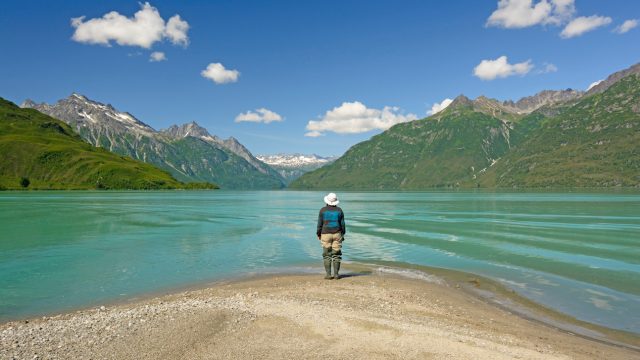
The National Park System is considered a national treasure for protecting and preserving wildlife while making it accessible to visitors from around the world. According to the National Park Service (NPS), there were more than 297 million recreation visits across 423 sites in 2021. But while major attractions such as Yellowstone and Yosemite National Park may be synonymous with a vacation to the great outdoors, the iconic sites still only represent a small portion of the more than 84 million acres and the 63 National Parks included in the system. Fortunately, if you’re looking to escape the groups of visitors that can descend upon big-name destinations during the high season, there’s still an option. Read on to see which were the 10 least crowded National Parks in the U.S. in 2021, according to visitation data from the NPS.
READ THIS NEXT: The 10 Best National Parks That Need to Be on Your Bucket List.
10
Glacier Bay National Park
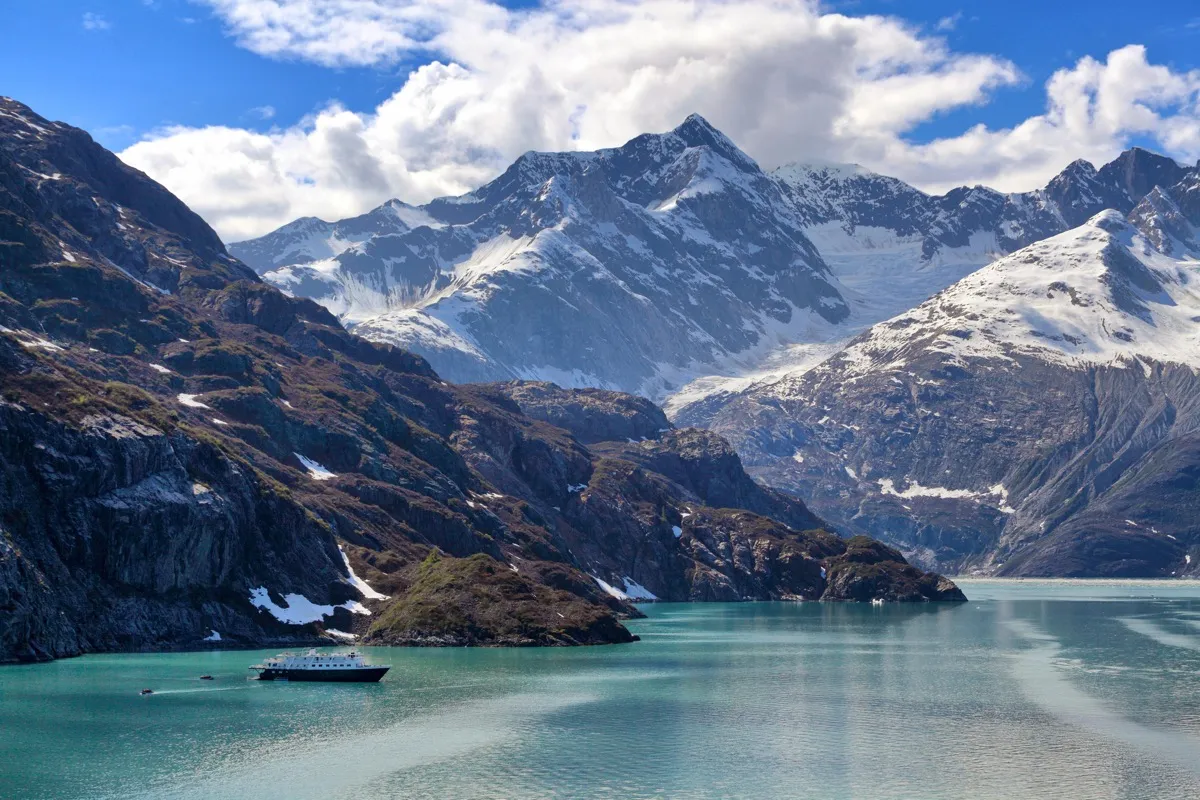
Number of recreation visits in 2021: 89,768
As the largest state in the union, Alaska is filled with pristine wilderness, and Glacier Bay National Park is no exception. At more than 3.2 million acres, it’s the sixth-largest site in the system overall, according to National Park Obsessed. The less than 90,000 visitors who stopped by in 2021 usually seek out the park for its stunning tidewater glaciers that line the mountainous coast.
9
Dry Tortugas National Park
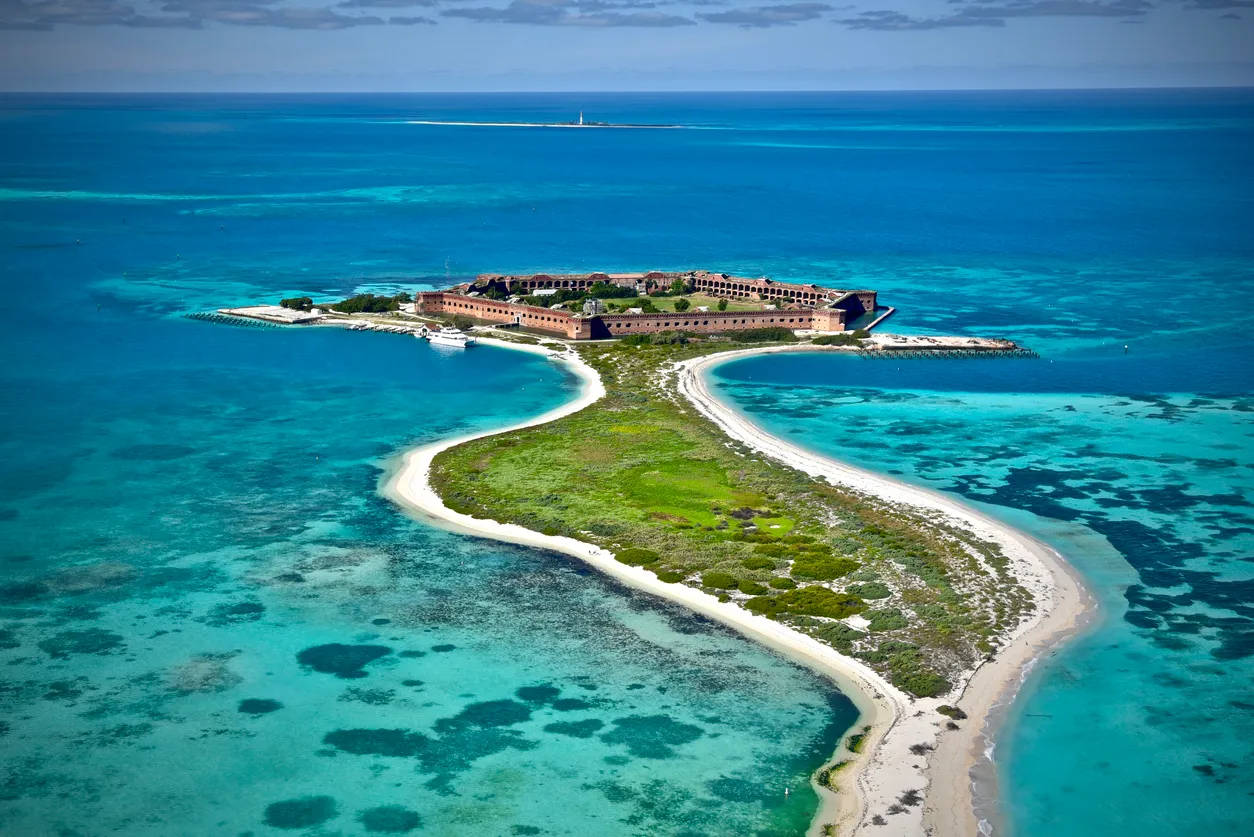
Number of recreation visits in 2021: 83,817
Not all remotely located parks find themselves in the middle of the continent or tucked into the arctic. Lying roughly 70 miles west of Key West, Florida, Dry Tortugas National Park is only accessible by ferry or seaplane, making it a great day-trip option with limited crowds.
“The most popular thing to do once you get there is to go snorkeling in the clear turquoise water, where healthy, vibrant corals, sea sponges, and tropical fish are abundant,” travel blogger Erin Moreland previously told Best Life. “And with 99 percent of the park being actually underwater, there are miles of unspoiled shoreline to explore during your epic day!”
8
Wrangell-St. Elias National Park
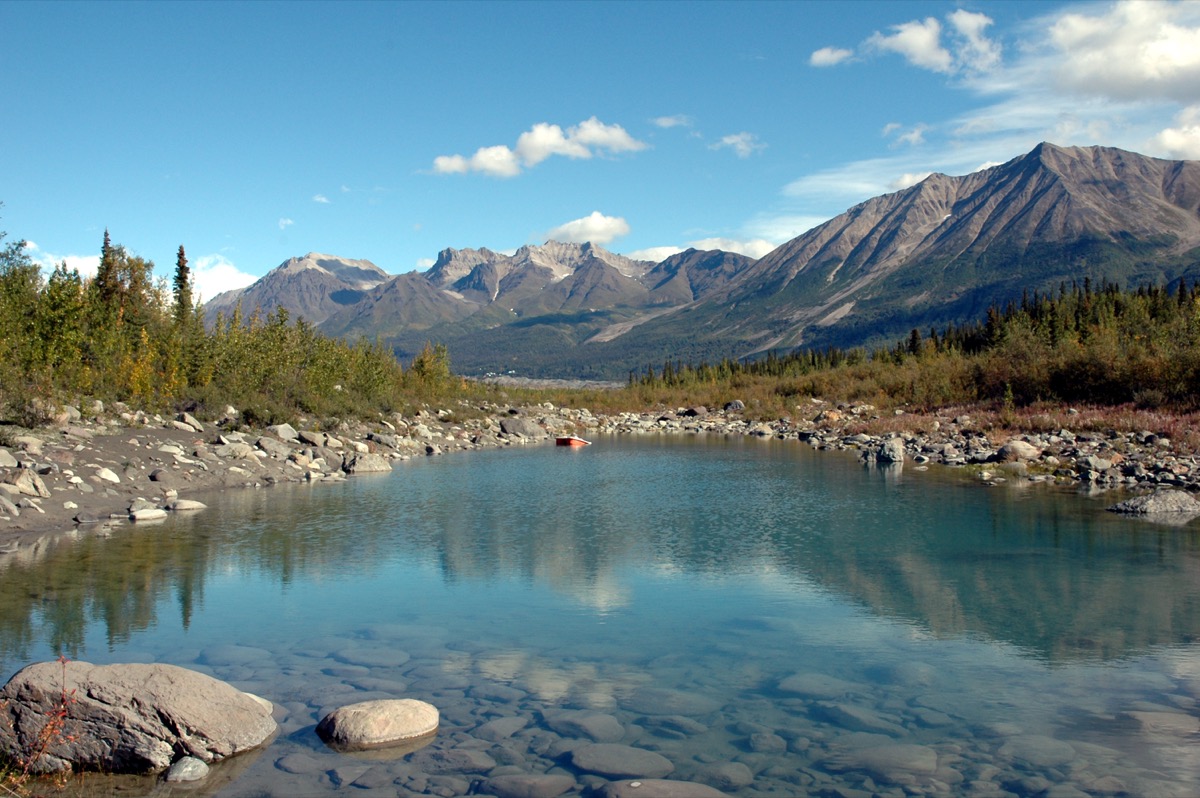
Number of recreation visits in 2021: 50,189
While Wrangell-St. Elias National Park in Alaska may be near the bottom of the list in terms of the number of annual visitors, it still tops another important ranking. It’s the largest national park by area in the entire system at roughly 8.3 million acres, making it the equivalent of six Yellowstones, according to the NPS. It’s also home to Mt. Wrangell, one of the largest active volcanoes in North America, and the Nabesna Glacier, the longest valley glacier on the continent.
For more travel advice delivered straight to your inbox, sign up for our daily newsletter.
7
Isle Royale National Park
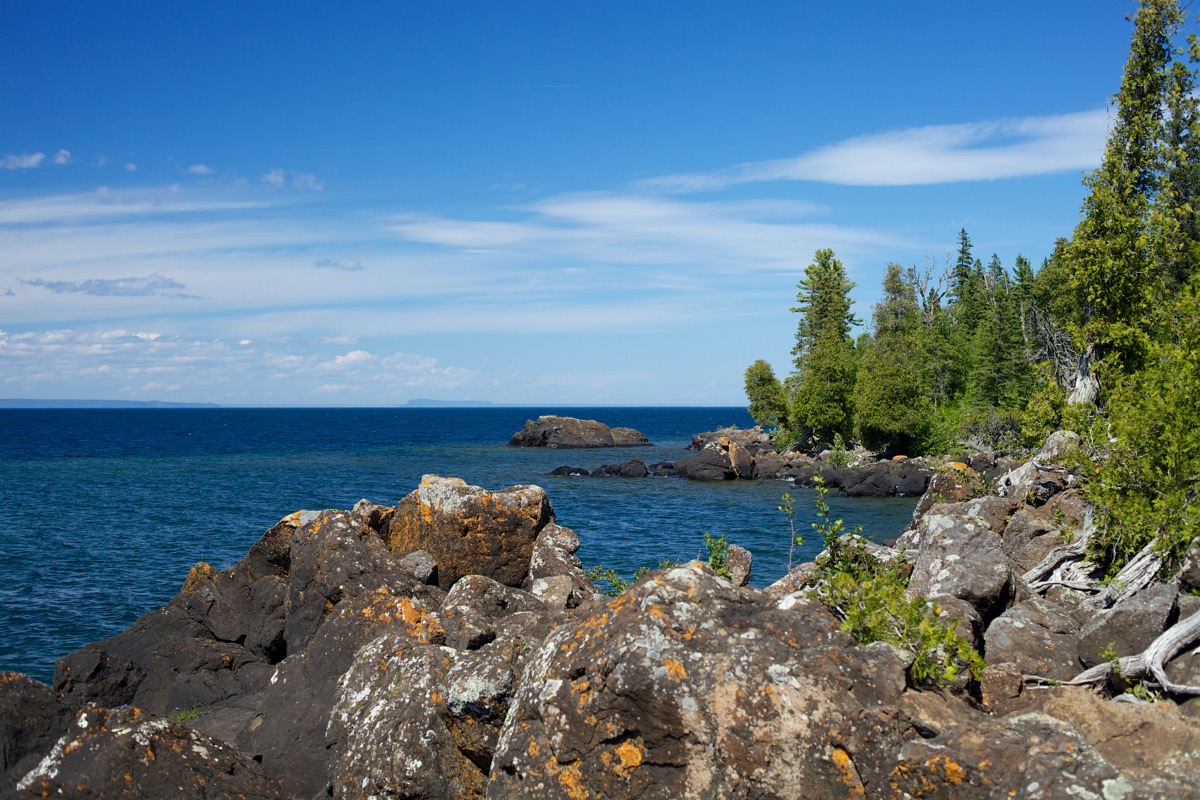
Number of recreation visits in 2021: 25,844
Michigan’s Isle Royale National Park is famed for its 850 acres made up of archipelagoes, 165 miles of hiking trails, 36 campgrounds, and historic lighthouses. But its remote location within Lake Superior makes it one of the more challenging sites in the system to visit, limiting the crowds who get to experience the natural beauty.
6
Katmai National Park
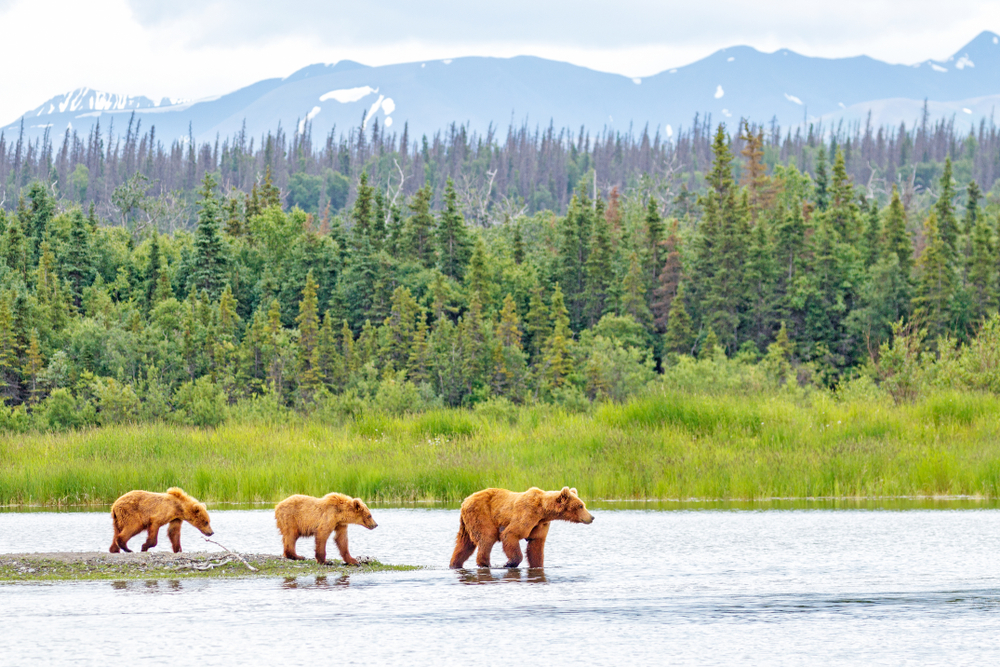
Number of recreation visits in 2021: 24,764
It’s not a lack of natural wonder that keeps visitors away from Katmai National Park in Alaska. It’s the fourth-largest site in the system by area at roughly 3.7 million acres—or approximately the size of Connecticut, according to National Park Obsessed. The park is also home to the famous Brooks Camp at Brooks Falls, which allows visitors to get a glimpse of the site’s brown bears hunting salmon attempting to swim upstream. And bus tours are also available for viewing the Valley of Ten Thousand Smokes, which is the site of the largest volcanic eruption of the 20th century.
5
Lake Clark National Park
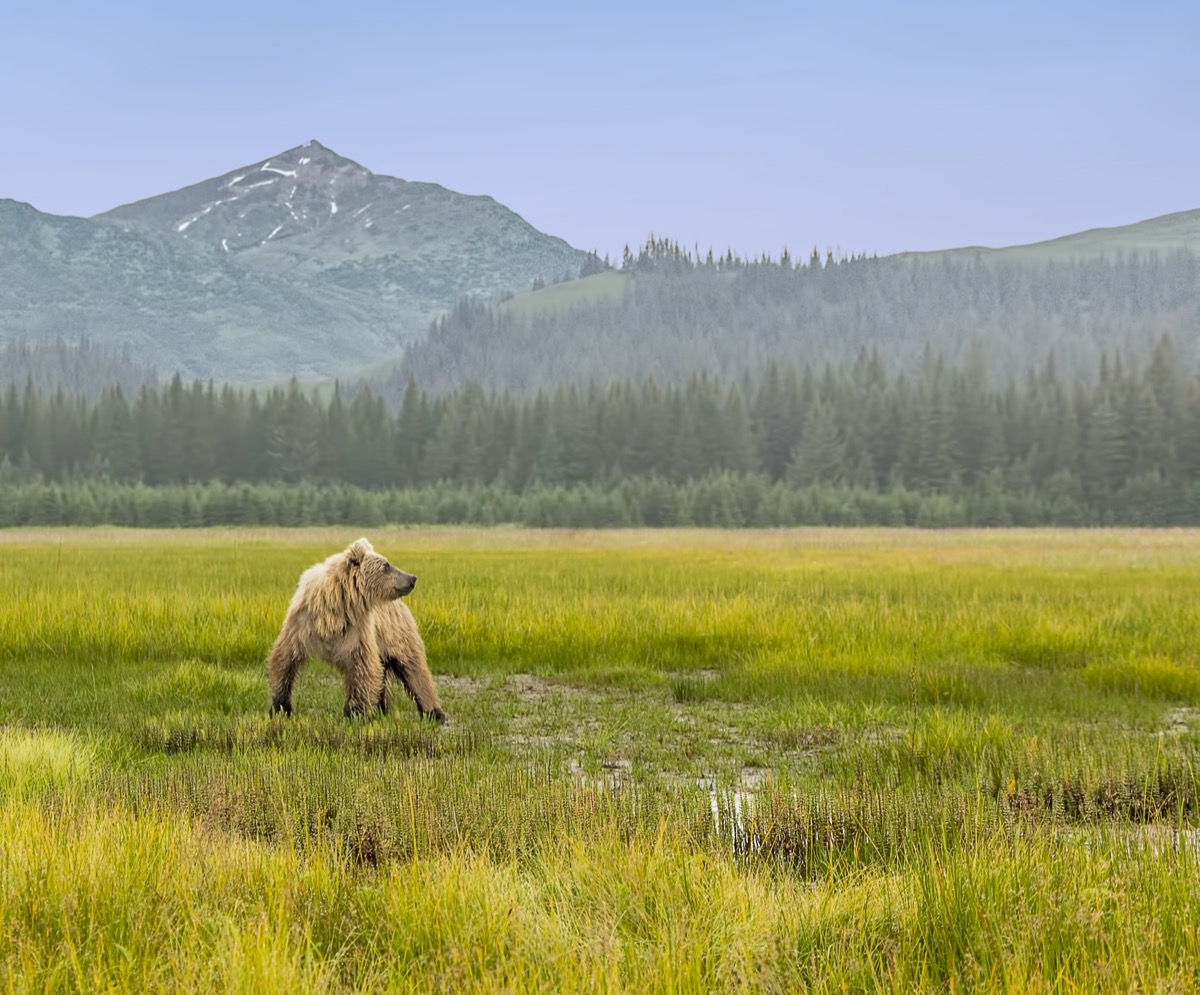
Number of recreation visits in 2021: 18,278
Lake Clark National Park represents yet another entry on the list of sites with few visitors that is located in Alaska. And like the others, it’s still quite large in size, ranking seventh overall in the system at 2.6 million acres. Since there are no road systems leading to the park, accessibility is limited to small planes—but those who make it there are treated to spectacular scenery, including glaciers, craggy mountains, and active volcanoes.
READ THIS NEXT: Yellowstone National Park Will No Longer Let Visitors Do This.
4
North Cascades National Park
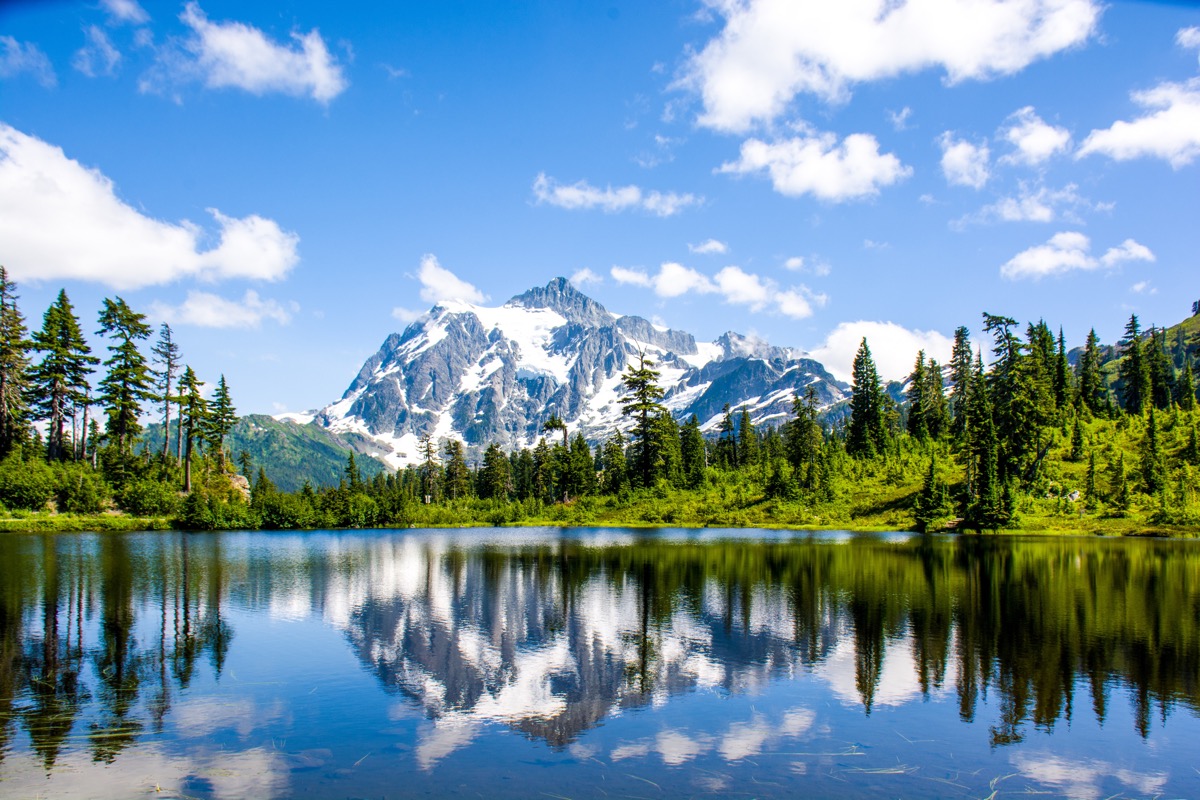
Number of recreation visits in 2021: 17,855
Despite only being located three hours from Seattle in Washington State, North Cascades National Park sees relatively few annual visitors. But it’s still beloved for its gorgeous topography, where rugged mountain peaks hug deep valleys. It’s also home to more than 300 glaciers, which is more than any other U.S. National Park outside of Alaska, according to NPS.
3
Kobuk Valley National Park
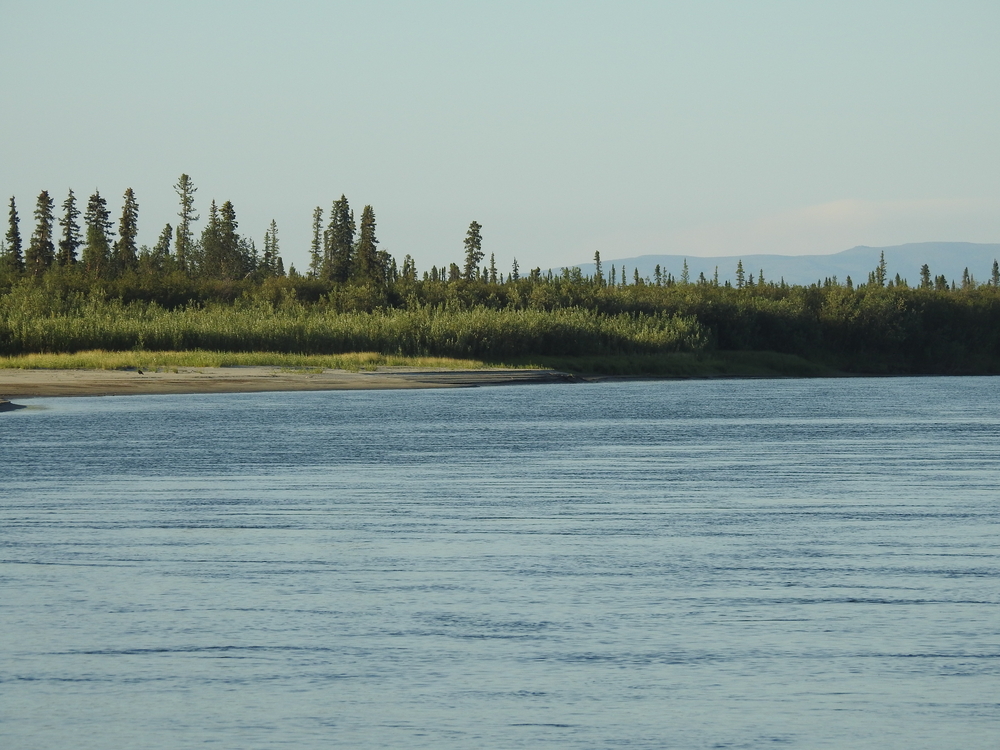
Number of recreation visits in 2021: 11,540
Kobuk Valley National Park in Alaska ranks as the ninth-largest park overall by size. And while it may not see as many visitors as the more well-known destinations in the park system, it is the site of a massive annual migration where roughly half a million caribou cross the park’s famous sand dunes.
2
National Park of American Samoa
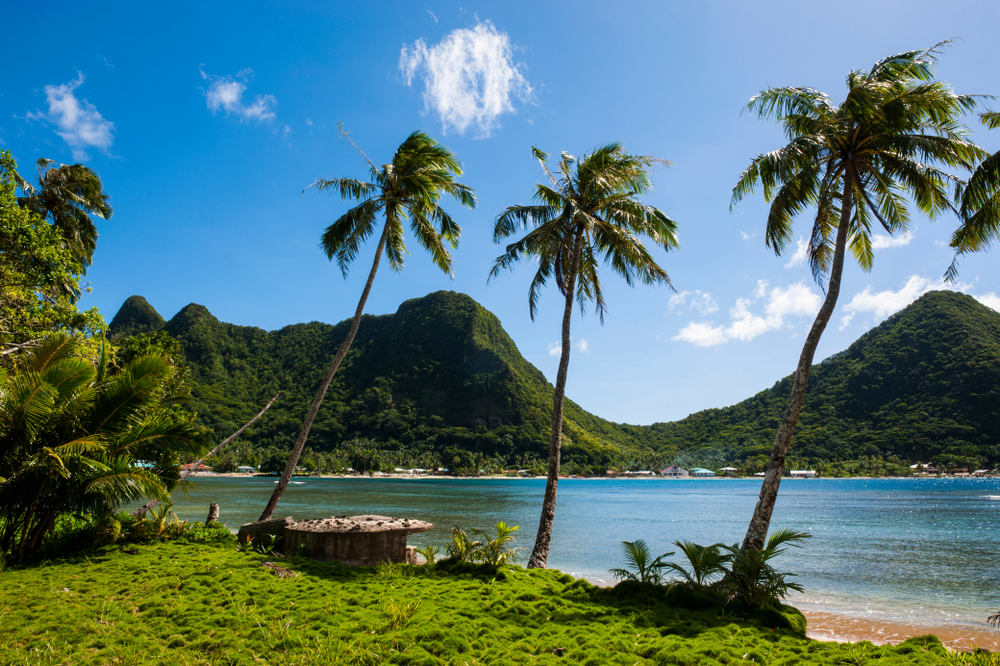
Number of recreation visits in 2021: 8,495
Besides being the second-least visited site in the system, the National Park of American Samoa ranks as the third-smallest by size. And while COVID-19 travel restrictions factored into thinning out crowds on the remote island in the South Pacific for 2021, its lush tropical ecosystem makes it a memorable visit for anyone who gets to take in the park’s wildlife and coral reefs firsthand.
1
Gates of the Arctic National Park
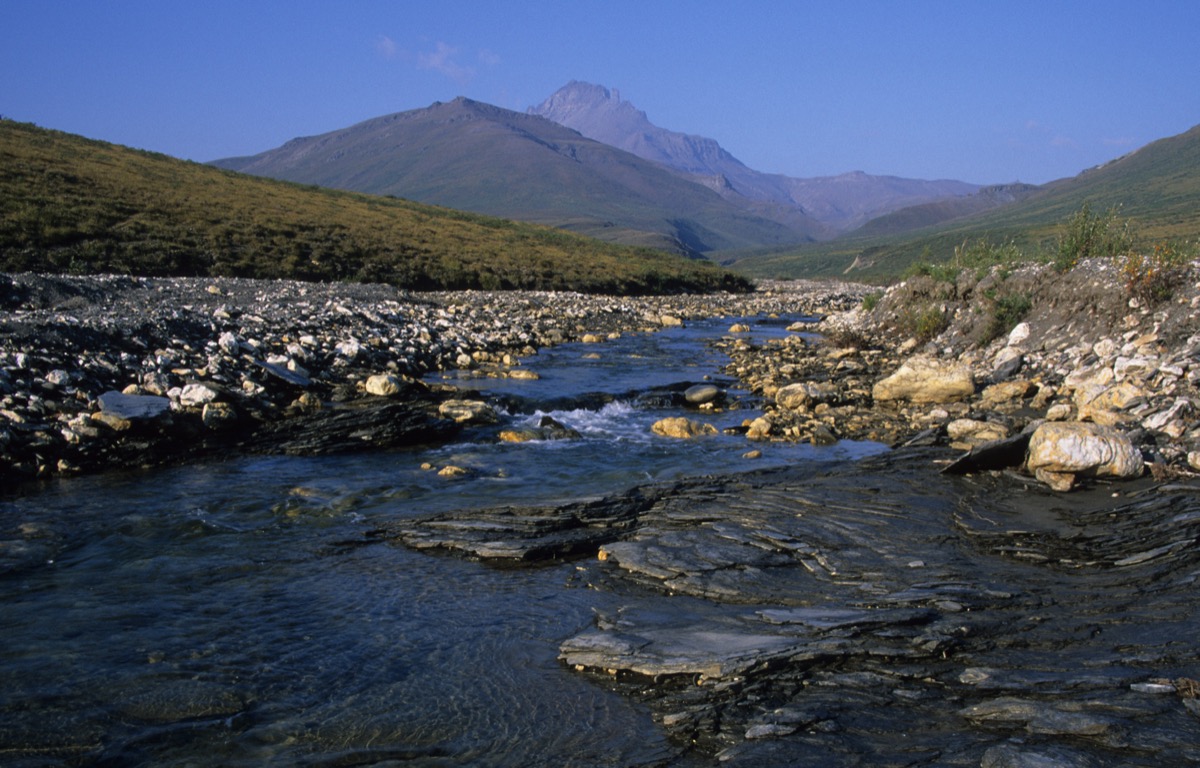
Number of recreation visits in 2021: 7,362
Even though it’s the second-largest site in the system at nearly 8.5 million acres, it’s not surprising that so few people make their way to Gates of the Arctic National Park. It’s the northernmost site in the system, located above the Arctic Circle with no roads, trails, or established campgrounds for visitors, truly making it a piece of untouched Alaskan wilderness that requires plenty of skill and proper planning to explore safely. Those looking to make their way to the remote park will most likely have to book a small plane to start and end their journey.